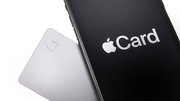Article
Hip to scrip
An ATM with no cash? It makes a lot of sense for certain merchants, say deployers of scrip terminals.by Ann All, editor
March 11, 2002
According to Webster, scrip is "any of various documents used as evidence that the holder or bearer is entitled to receive something."
Scrip is also an interesting option for certain retailers considering a cash machine, especially those with very low transaction volumes and little money to spend on an ATM program.
Mathew Donovan, marketing manager of Houston-based CardTronics, said that a scrip unit's low cost -- 20 percent to 35 percent less than a low-end cash dispenser -- is guaranteed to get a merchant's attention. "They like anything that's inexpensive."
That's why CardTronics, a distributor for several ATM manufacturers, also manufactures and deploys a scrip terminal called the CTM (Cash Ticket Machine). "It gives us another avenue to close a deal with the merchant," Donovan said.
Art Fried, president and CEO of Englewood Cliffs, N.J.-basedATM/Debit Resource, said that because units like his company's GreenMachine 2000 are considered a "low-ticket item," merchants don't need a lengthy credit history to get one.
"To lease a cash dispenser, you need a good Dunn & Bradstreet report plus good personal credit. You have to be in business two or three years to get a leasing company to even look at you," Fried said. "ATM salespeople get a lot of declined applications because of that. Our machine can close that gap."
Most of Fried's scrip business comes from small delicatessens, billiard halls, coffee shops and strip clubs -- merchants who "don't want to get into a lease for 60 months," he said.
Fried and his company co-founder, wife Yaffa, offer a deal in which merchants can lease a GreenMachine for $80 a month. At that rate, "they need less than two transactions a day to cover the cost," said Yaffa Fried. The two intend to introduce an even lower price point in 2000.
Long Beach, Miss.-based Triton Systems is the only major ATM manufacturer that produces a scrip terminal. Ken Paull, Triton's vice president of sales and marketing, said a merchant can break even on a scrip terminal with only about a quarter of the transactions he would need on an ATM.
Triton's SuperScrip, like most scrip machines, is essentially a credit card terminal tied to a printer. Triton offers several bells and whistles, including an upgrade to a color screen and software that allows for remote management of the terminal.
OK, gimme a pack of gum
For a customer, the drill is the same as an ATM. He swipes his card but receives a piece of scrip instead of cash. The scrip must be redeemed where it was dispensed.
That may be scrip's biggest advantage, said Fried. "We believe our machine is doing what an ATM is supposed to be doing -- and that's driving sales."
Fried cited the experience of one of his customers, a merchant with 10 locations -- three of them equipped with ATMs and the rest with scrip machines. A video surveillance camera at one of the locations yielded film of a customer withdrawing cash from an ATM, then selecting an ice cream. The man got annoyed while waiting in line, left the ice cream to melt on a chip rack and walked out.
"With our GreenMachine, that wouldn't have happened," said Fried, who prefers the term "cashless ATM" to scrip.
The requirement to visit a cashier is "the strongest advantage that scrip has always had over ATMs," agreed Norma Wayco, vice president of Lynk Systems, an Atlanta based processor. "If you've got to go the checkout line to get your cash, your probability of making a purchase goes way up."
Scrip machines are generally much smaller than an ATM, another advantage in cramped retail environments, Wayco added.
"You can put a scrip device on a countertop," she said. "Merchants aren't in the banking business. They can take that square footage and probably make more of a profit selling cigarettes or beer."
No cash, no problem
Joseph Vu, president of the Sacramento, Calif.-based Universal ATM Network, said scrip eliminates one of a merchant's biggest headaches: cash replenishment.
"The hardest part of any cash dispenser program is who fills the cash and where does the cash come from," said Vu, who drives about 1,400 scrip machines. "If I'm a nightclub owner, do I want my manager sticking $5,000 in this machine every couple of days, or would I rather not have to worry about it?"
Wayco thinks that scrip could find "an excellent market" in countries where the cost of cash is high and the logistics of replenishment are especially daunting. That's true in Latin America, where Paull said Triton recently shipped 100 of its SuperScrip units.
Lack of cash also means fewer concerns about security, said CardTronic's Donovan. "Merchants need to ask themselves: Am I in an area where a cash machine is going to increase the risk of my store being broken into?"
Unlike stolen ATMs, scrip units are generally recovered, Donovan said. "We've had, like, four or five stolen in the last seven years. We usually find it right across the street, where they've left it after figuring out they can't get any cash."
Ease of installation is yet another reason for scrip's popularity among merchants. "We ship it out with instructions, they hook it into a phone line and off they go," said Triton's Paull.
And fewer moving parts mean fewer on-site service calls, Donovan said. "I'd say 95 percent of scrip machine problems can be fixed over the phone."
Here, there, not everywhere
Always somewhat of a regional phenomenon, EFT network rules governing scrip have caused it to vanish almost entirely from certain areas of the country.
For instance, NYCE disallows scrip in its Northeast region -- except on terminals that were deployed before Oct. 7, 1994. About 227 units still operate under that grandfather clause, according to a NYCE spokesperson. If that's not confusing enough, NYCE still allows scrip in its Midwest region.
Because of rules like these, deployers must contend with a higher-than usual card rejection rate. For instance, Wayco said that scrip machines in California don't carry the Interlink network logo. "Without Interlink on the terminal, you're giving up maybe 35 or 40 percent of the possible transactions," she said.
The South, home of scrip-friendly regional networks like Pulse and Star Systems, is scrip's biggest stronghold. In all regions where it's allowed, scrip is processed as a POS rather than an ATM transaction -- which means merchants don't receive interchange from card issuers.
But even with merchants absorbing the processing costs, online POS transactions are "still cheaper than a credit card or a Visa Check Card," said the Universal ATM Network's Vu.
For scrip customers, the lack of interchange is a bonus because they pay no "foreign fee" to their card issuer. At locations like casinos, it's an even bigger plus because "POS has higher limits and customers can withdraw more," Vu said.
Again, network availability is a factor. Some small regional networks, like Colorado's CU Link, "don't even have POS in their switch," CardTronic's Donovan said.
Before 1993, scrip was treated as an ATM transaction. The switch has been a factor in scrip's decline, according to Donovan, whose company drives about 800 or so scrip terminals, down from a high of about 1,300 in 1996.
"If they allowed interchange on scrip machines -- or took it away on cash machines -- it would put ATMs and scrip on a level playing field," he said. "Scrip would win every time with the merchants, because their customers spend more money."
Wayco, of Lynk, thinks the surcharge had an even bigger impact on scrip. Like so many other areas of the ATM business, scrip just hasn't been the same since the widespread adoption of the convenience fee in 1996. The fee, coupled with the introduction of less expensive ATMs, convinced many merchants to switch from scrip to cash dispensers.
Despite scrip's decline in recent years, deployers agree it will likely remain a viable option for certain types of locations.
Noting that CardTronics still sells 10 to 20 scrip units a month -- even with its ATM business -- Donovan said, "I don't think it will ever go away."
Included In This Story
Triton Systems
Triton FI based products • NO Windows 10™ Upgrade • Secured locked down system that is virus/malware resistant • Flexible configurations - Drive-up and Walk-up • Triton's high security standards • NFC, anti-skim card reader, IP camera and level 1 vaults are all options • Triton Connect monitoring • Lower cost













